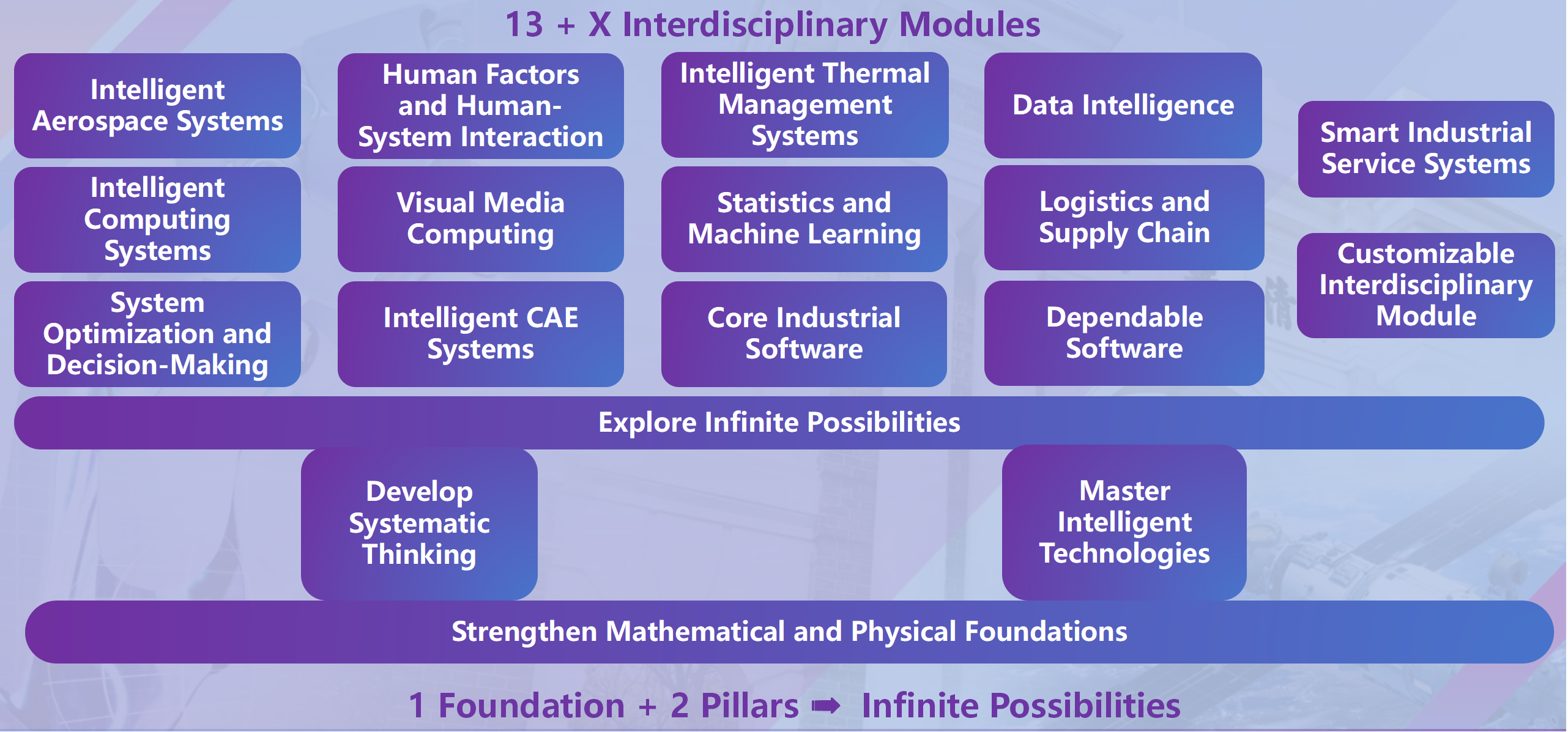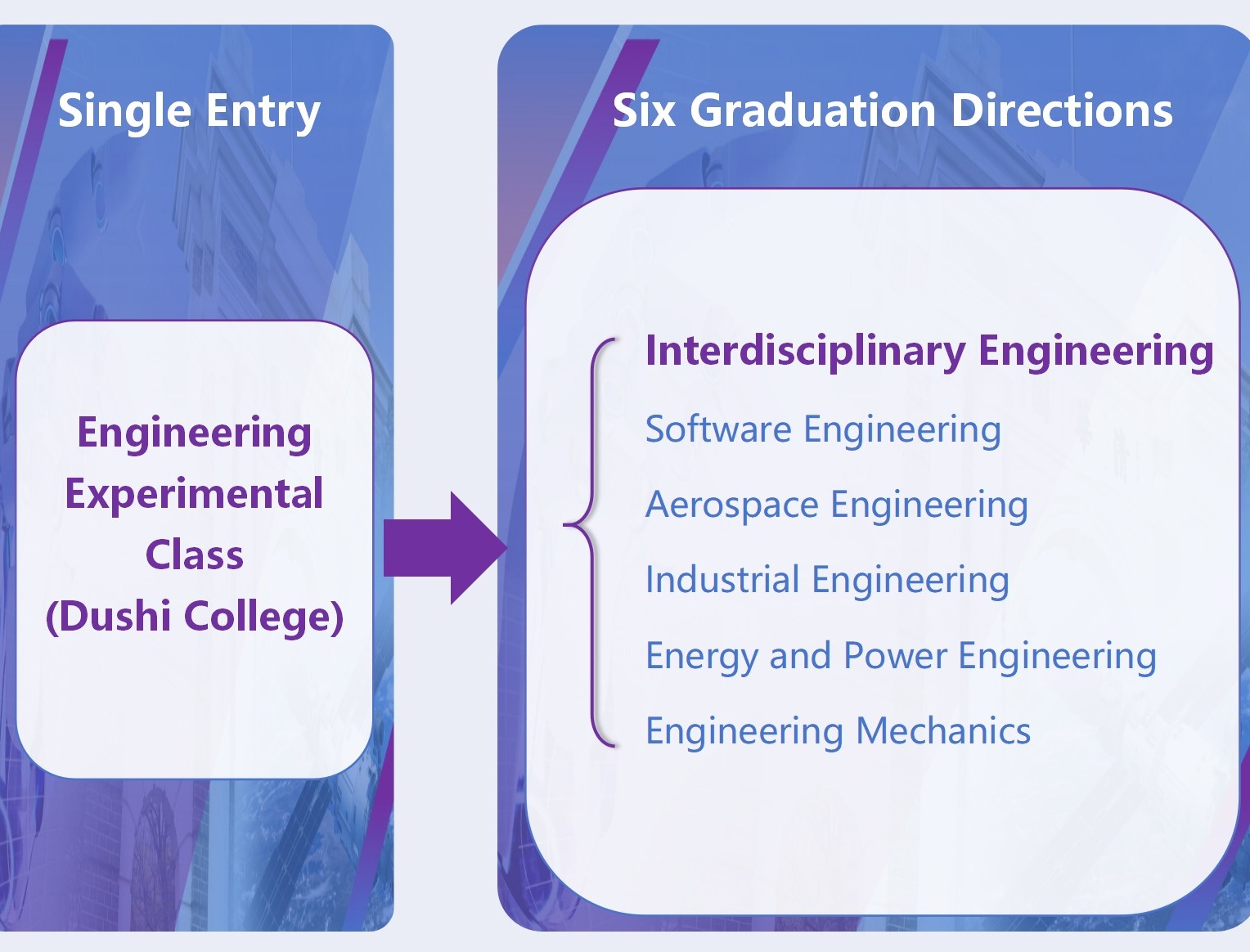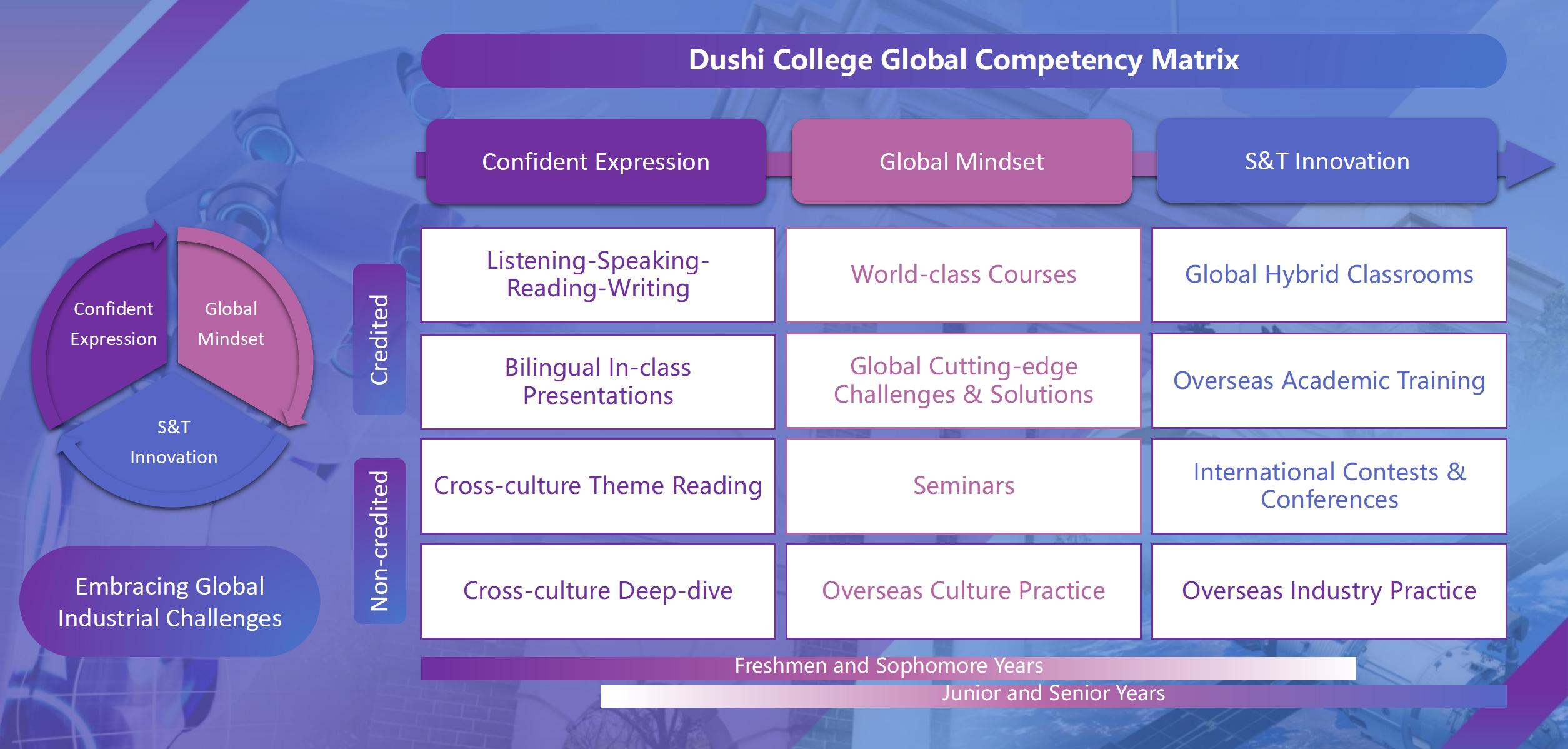Overview of the College

I) Open Curriculum System
Characterized by "solid foundations, robust intelligence, system emphasis, and interdisciplinary encouragement", Dushi College offers an open curriculum system comprising general education, basic courses, interdisciplinary courses, and advanced practice. Students will acquire solid foundations in mathematics, physics, and electromechanical engineering, with a particular emphasis on strengthening their foundation of information and intelligence (solid foundations); understand the cutting-edge developments in AI-driven technological advancements, comprehend computational and human intelligence, and master big data and large model technologies (robust intelligence). Additionally, they will develop systems thinking and humanistic spirit, mastering system design and optimization methods (system emphasis); and also acquire an interdisciplinary knowledge system in the fields of aerospace, systems engineering, intelligent technologies, and more (interdisciplinary encouragement).
Dushi College has comprehensively refined and reconstructed its curriculum content, offering 13 optional interdisciplinary modules focused on the frontiers of technology. Students can choose one core module based on their interests as their major while selecting additional courses from all modules, creating a "one student, one plan" approach to education.Students may also independently design a core module under the guidance of their tutors, subject to approval by the Academic Committee of Dushi College.

II) Unique Training Features
Dushi College values each student's unique characteristics and growth pace, moving beyond a GPA-centric evaluation system. Students are free to choose their development direction within the college, without limitations on transferring between departments or colleges. Postgraduate candidates can select bridging courses under the guidance of their tutors.
Dushi College admits students under the "Engineering Experimental Class (Dushi College)." Graduates will receive a Bachelor of Interdisciplinary Engineering degree. Alternatively, students can pursue traditional majors to earn a Bachelor of Software Engineering, Aerospace Engineering, Industrial Engineering, Energy and Power Engineering, or Engineering Mechanics.
Dushi College aims to help students grow into designers of national projects, experts in major engineering management, software system architects, decision-makers of complex systems, hard-core tech entrepreneurs, and academic leaders, thereby unleashing their limitless potential. Graduates enjoy diverse career prospects, spanning research institutes, leading enterprises, government agencies, and tech startups.

III) Faculty Resources
The supporting departments of Dushi College have a faculty team of over 180 members, including 7 academicians and more than 70 national-level talents. Each student is assigned a tutor for their entire academic journey, actively fostering close interactions and providing guidance on academics, life, and career development. The college is equipped with six national-level laboratories and engineering research centers, as well as a national-level experimental teaching demonstration center, providing a robust platform for students' personalized growth.

IV) Global Competence
Dushi College is dedicated to cultivating students' global competence through a comprehensive and multifaceted approach. The majority of the college's faculty have overseas academic backgrounds, ensuring a global perspective in education. Curricula are designed using internationally renowned textbooks, with some specialized courses taught in English or bilingually to enhance students' proficiency in global academic settings.
Dushi College leverages its supporting departments to organize a variety of academic lectures, inviting distinguished scholars and renowned international experts to share insights on the latest advancements in their fields. To further enhance global engagement, the college arranges overseas professional practicums during summer and winter vacation, offering students hands-on experience in international settings. Additionally, students are encouraged to participate in global competitions in areas such as aerospace, complex systems modeling, artificial intelligence, and big data, which focus on technological frontiers and complex systems.


